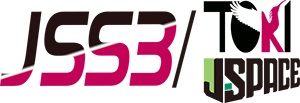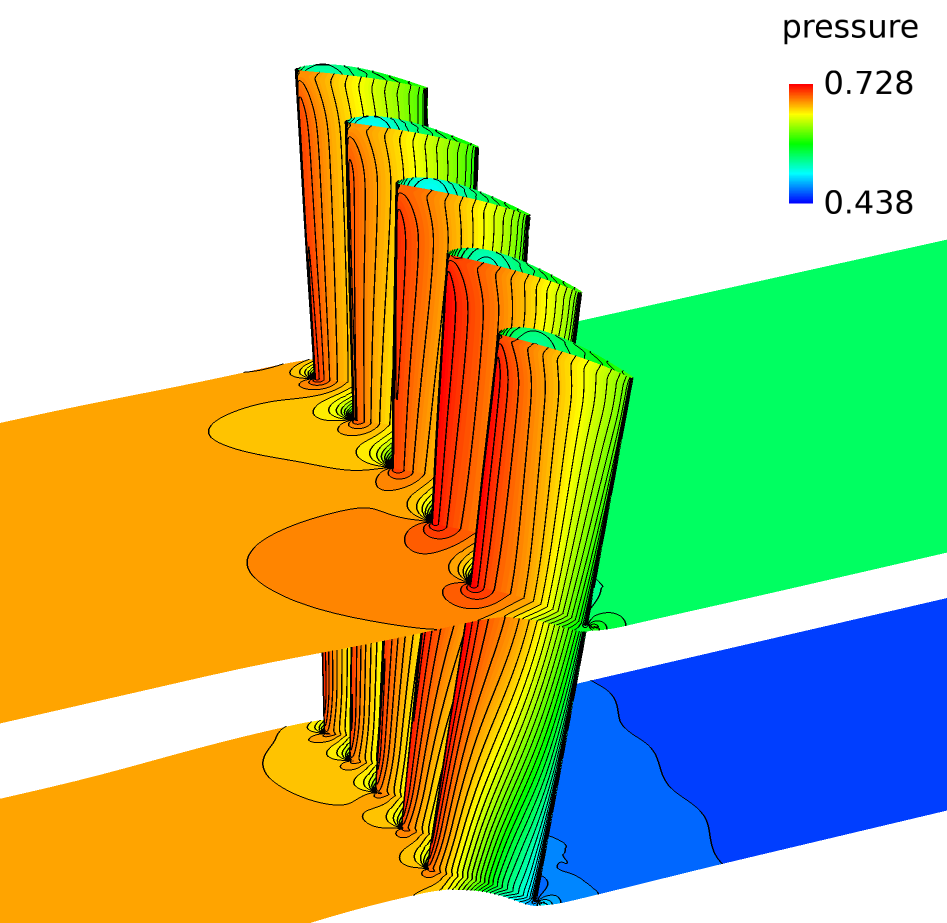aFJR Lightweight low-pressure turbine technology development
JAXA Supercomputer System Annual Report April 2017-March 2018
Report Number: R17EA2750
Subject Category: Aeronautical Technology
- Responsible Representative: Toshio Nishizawa, aFJR Project Team, Aeronautical Technology Directorate
- Contact Information: Junichi Kazawa kazawa.junichi@jaxa.jp
- Members: Junichi Kazawa, Toshio Nishizawa, Yasuo Horiguchi
Abstract
The purpose of aFJR project is to advance research on jet engine component technologies so that Japanese manufacturers can join more effectively in international joint-development projects on next-generation jet engines. In order to suppress the weight increase of the low pressure turbine, we develop ultra lightweight low pressure turbine technology applying heat resistant composite (ceramic based composite material (CMC)) by developing over-rotation prevention design technology and high reliability evaluation. As a part of the evaluation of high reliability, we will develop flutter boundary prediction technology considering structural characteristics and flutter prediction technology of CMC made low pressure turbine blade , after confirming the prediction accuracy of flutter occurrence point of low pressure turbine blade with comparison of experiment and CFD.
Reference URL
Please refer to ‘aFJR (Advanced Fan Jet Research) project | ECAT – Environment-Conscious Aircraft Technology Program | Aeronautical Technology Directorate‘.
Reasons for using JSS2
Since flutter analyses have many parameters and the number of analysis cases is enormous, it is necessary to use supercomputers to obtain results within a limited period of time.
Achievements of the Year
We analyzed the flutter characteristics when the material of the blade was changed from SUS to CMC using the airfoil used in the experiments in last year. It was confirmed that flutter characteristics analyses were possible also for CMC made blades, and flutter characteristics for blades of different materials could be grasped.
Publications
N/A
Usage of JSS2
Computational Information
- Process Parallelization Methods: MPI
- Thread Parallelization Methods: N/A
- Number of Processes: 24 – 48
- Elapsed Time per Case: 30.00 hours
Resources Used
Fraction of Usage in Total Resources*1(%): 0.16
Details
Please refer to System Configuration of JSS2 for the system configuration and major specifications of JSS2.
| System Name | Amount of Core Time(core x hours) | Fraction of Usage*2(%) |
|---|---|---|
| SORA-MA | 0.85 | 0.00 |
| SORA-PP | 238,282.78 | 2.98 |
| SORA-LM | 0.00 | 0.00 |
| SORA-TPP | 0.00 | 0.00 |
| File System Name | Storage Assigned(GiB) | Fraction of Usage*2(%) |
|---|---|---|
| /home | 067.44 | 0.05 |
| /data | 3,897.80 | 0.07 |
| /ltmp | 1,441.59 | 0.11 |
| Archiver Name | Storage Used(TiB) | Fraction of Usage*2(%) |
|---|---|---|
| J-SPACE | 0.00 | 0.00 |
*1: Fraction of Usage in Total Resources: Weighted average of three resource types (Computing, File System, and Archiver).
*2: Fraction of Usage:Percentage of usage relative to each resource used in one year.
JAXA Supercomputer System Annual Report April 2017-March 2018



